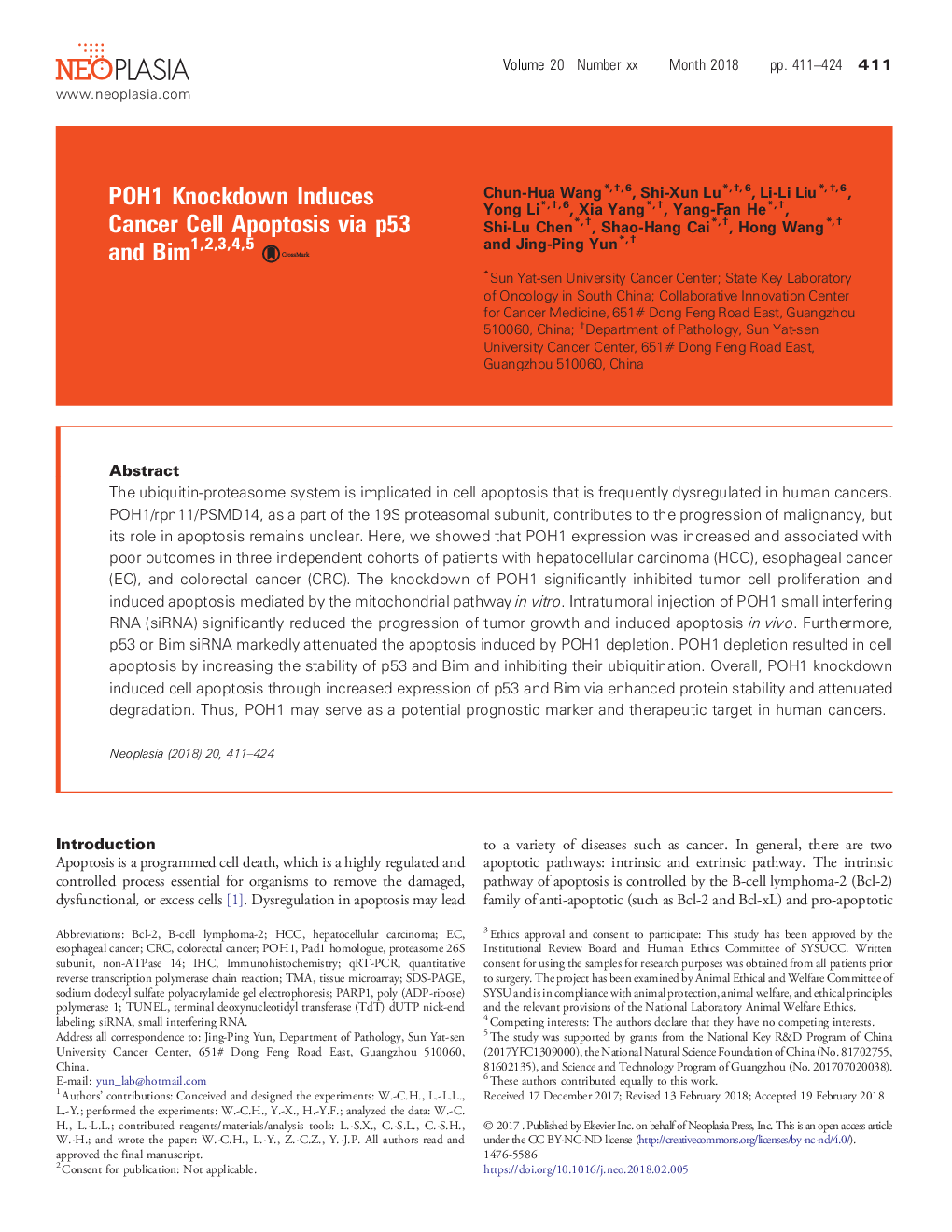| Article ID | Journal | Published Year | Pages | File Type |
|---|---|---|---|---|
| 8456810 | Neoplasia | 2018 | 14 Pages |
Abstract
The ubiquitin-proteasome system is implicated in cell apoptosis that is frequently dysregulated in human cancers. POH1/rpn11/PSMD14, as a part of the 19S proteasomal subunit, contributes to the progression of malignancy, but its role in apoptosis remains unclear. Here, we showed that POH1 expression was increased and associated with poor outcomes in three independent cohorts of patients with hepatocellular carcinoma (HCC), esophageal cancer (EC), and colorectal cancer (CRC). The knockdown of POH1 significantly inhibited tumor cell proliferation and induced apoptosis mediated by the mitochondrial pathway in vitro. Intratumoral injection of POH1 small interfering RNA (siRNA) significantly reduced the progression of tumor growth and induced apoptosis in vivo. Furthermore, p53 or Bim siRNA markedly attenuated the apoptosis induced by POH1 depletion. POH1 depletion resulted in cell apoptosis by increasing the stability of p53 and Bim and inhibiting their ubiquitination. Overall, POH1 knockdown induced cell apoptosis through increased expression of p53 and Bim via enhanced protein stability and attenuated degradation. Thus, POH1 may serve as a potential prognostic marker and therapeutic target in human cancers.
Keywords
poly (ADP-ribose) polymerase 1TMABcl-2PARP1qRT-PCRHCCSmall interfering RNAsiRNASDS-PAGESodium dodecyl sulfate polyacrylamide gel electrophoresisImmunohistochemistryIHCTUNELColorectal cancerEsophageal cancerB-cell lymphoma-2Tissue microarrayquantitative reverse transcription polymerase chain reactionHepatocellular carcinomaCRC
Related Topics
Life Sciences
Biochemistry, Genetics and Molecular Biology
Cancer Research
Authors
Chun-Hua Wang, Shi-Xun Lu, Li-Li Liu, Yong Li, Xia Yang, Yang-Fan He, Shi-Lu Chen, Shao-Hang Cai, Hong Wang, Jing-Ping Yun,
